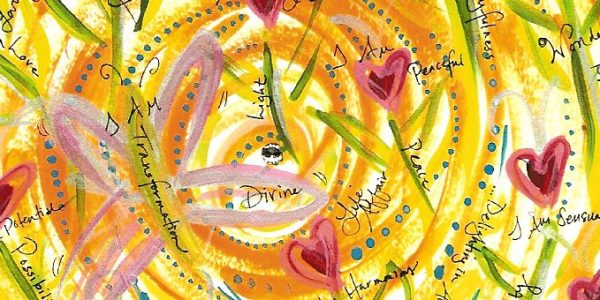Could the traditional approach to intelligence, based on IQ, be limiting the cognitive abilities of many individuals, such as yourself?
If you asked Dr. Howard Gardner, who developed the theory of Multiple Intelligences, he would say yes.
Howard Gardner worked as a developmental psychologist and research Professor of Cognition and Education at Harvard University. He wrote hundreds of research articlesand thirty books that have been translated into more than thirty languages. He is best known for his theory of Multiple Intelligences.
According to this theory, there are eight different intelligences which illustrate a broad range of human potential in children and adults.
These include:
Linguistic intelligence – Word Smarts
Linguistic
intelligence – Word Smarts
Logical-mathematical intelligence – Number/Reasoning Smarts
Spatial intelligence – Picture Smarts
Bodily Kinesthetic intelligence – Body Smarts
Musical intelligence – Music Smarts
Interpersonal intelligence – People Smarts
Intrapersonal intelligence – Self Smarts
Naturalist intelligence – Nature Smarts
(Note: In 2009, at 67 years of age,
after a lifetime of research Gardner, also suggested that existential and moral intelligences
may also be worthy of inclusion.)
Since our school systems and society typically applaud well-spoken and logical thinkers, many other strengths and abilities are overlooked or not held in equal esteem.
As we put the majority of our focus on the importance of linguistic and logical-mathematical intelligence, this comes at the expense of the gifts and abilities of individuals such as: entrepreneurs, musicians, artists, athletes, dancers, therapists, who have other expertise which bring meaning and richness to our world.
Not only feeling dismissed by society as a whole, these people also lack its support, reinforcement, acknowledgement, and are frequently poorly labeled.
What is your experience like?
- Have you considered various forms of intelligence?
- Which of these 8 ‘intelligences’ do you relate to?
- How would life be different for you, if these areas of intelligence were taught or recognized more?
The theory of Multiple Intelligences proposes a major transformation in the way teachers present their material in their lesson plans by incorporating elements such as music, art and theater activities, role playing, inner reflection time, field trips, nature mentorship, and Brain Fitness activities.
- How does this sound to you?
- Would it be a contrast from how you recall your school experience?
- What was your experience like?
Thankfully many educators understand that not all children are alike, nor do they learn in the same way. Many teachers are curious and interested in finding new approaches they can incorporate into their classrooms.
Of course, paradigm shifts take time to roll out from idea to implementation. ‘Old school’ methods of sitting still in classrooms through hours of lecture time, worksheets, textbooks, and tests based on rote memorization of material, (rather than real life understanding and practical applications), is still the norm.
This issue is not limited to children at school. The workplace is the adult classroom.
Many workplace employees are not making optimal use of their cognitive potential due to childhood pressures or the lack of self discovery of their natural abilities.
Kinesthetic and people-oriented individuals could be stuck working at a desk, tucked away in a cubicle when they’d be better suited for work as a personal trainer, body therapist, environmentalist, or recreation manager.
If a person becomes familiar with the Multiple Intelligence theory and starts to uncover other areas where their personal strengths reside, they can begin a new path of self development. Likely this will lead to changes or enhancements in their professional roles as well.
Also, there are many adult learning programs, extracurricular activities, and hobbies a person can take part in.
- What skills do you admire in other people?
- If time or money wasn’t a concern, what would you do?
- Do your hobbies/extracurricular activities complement or contrast with your daily work activities?
OPPORTUNTIY AWAITS
With personal inquiry and self-reflection, you may start to uncover aspects of yourself and your intelligence that you never considered before.
Due to neuroplasticity and neurogenesis, we can be lifelong learners and take up new activities and learn new skills at every age.
I’ve known many people who started a ‘second career’ out of choice and personal interest once they retired. As well, I know many seniors who are rediscovering long forgotten personal interests, travelling, or even going back to school.
If you’d like to explore your Multiple Intelligences, here’s an activity for you:
- Get a blank sheet of paper
- Draw a circle in the center of the paper and write down the question you want to ask, such as: ‘what is my Multiple Intelligence profile’ or ‘what Multiple Intelligence areas need more of my attention’
- Draw eight straight lines or spokes radiating out from this encircled topic
- Label each line with a different intelligence
- Visit each “intelligence spoke” and see how it speaks to you. Does it draw you in, stump you, or repel you?
- Notice what images, words, ideas, or feelings surface.
- Jot down this information so you can review it after.
In the process, you are likely to notice some interesting insights and themes revealed. Be curious as to how you can apply this newfound information to your life. Remember, there is no right or wrong.
You’ll discover you are more intelligent than you think!
To your Multiple Intelligences,
Jill

